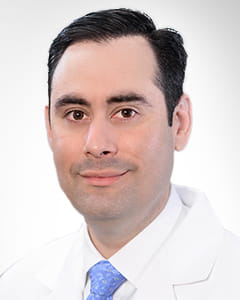If you’ve ever had a burning feeling in your chest that wakes you up at night or a bitter taste in your mouth after lying down, you’ve probably experienced heartburn. Although it doesn’t involve the heart, that painful feeling in the chest area can make you think your heart is on fire.
Heartburn, also known as gastroesophageal reflux disease (GERD) or acid reflux disease, is a common condition that anyone can get, but for some, it occurs frequently, even several times a week. It happens when stomach acids flow into the esophagus, which connects the mouth and the stomach. Those acids irritate the esophagus, causing that burning sensation.
The Symptoms
Heartburn symptoms include:
- Chest pain
- Difficulty swallowing
- Regurgitation of food or liquid
- Chronic cough
- Laryngitis
- New or worsening asthma
- Disrupted sleep
Although unrelated, heartburn has some similar symptoms as a heart attack, and it may be difficult to tell the difference. Heart attack symptoms may include chest pain, shortness of breath and jaw or arm pain. If you have pain in your chest and aren’t sure of the cause, seek immediate medical attention.
What Causes Heartburn?
We know that the pain comes from acids entering the esophagus, but why does that happen? At the bottom of the esophagus is a circular band of muscle, or sphincter, which tightens or loosens to allow food to go from the esophagus to the stomach. If that sphincter is weak or relaxes abnormally, it can allow acids from the stomach to go the other way, into the esophagus. Conditions such as obesity, pregnancy and hiatal hernias can increase the risk of heartburn.
Other heartburn triggers include:
- Smoking
- Eating large meals
- Eating late at night
- Eating fatty or fried foods
- Drinking alcohol or caffeine
- Taking some medications, such as aspirin
- Eating acidic foods
- Drinking carbonated beverages
Although heartburn is uncomfortable, by itself, it is not dangerous. However, if untreated, over time the constant inflammation to the esophagus can create scar tissue, making the esophagus narrow, so food becomes hard to swallow. The irritation also can cause painful sores on the esophagus. These changes can lead to tissue damage in the esophagus that is associated with an increased risk of esophageal cancer.
Treating Heartburn
To help minimize heartburn, try lifestyle changes such as:
- Stop smoking, because nicotine can weaken the sphincter in the esophagus.
- Eat smaller, more frequent meals and eat slowly. Large meals put pressure on the sphincter muscle to keep contents in the stomach.
- Avoid eating late at night. Eat at least three hours before going to bed to allow for digestion.
- Avoid foods that trigger your discomfort.
- Sleep on an incline. A wedge-shaped cushion is best. Propping your head and shoulders up on pillows can make heartburn worse by putting pressure on your stomach as you curl at the waist.
- Chew sugarless gum after meals so you salivate more, which neutralizes the acid. However, avoid peppermint-flavored gum, which can be a heartburn trigger.
- Wear loose-fitting clothes.
- Track when heartburn starts and what activities or foods may have triggered it.
Heartburn may be common, but it can disrupt your sleep and sense of well-being. If your symptoms don’t improve or they worsen, make an appointment to talk with your doctor.
Choose to Stay in Touch
Sign up to receive the latest health news and trends, wellness & prevention tips, and much more from Orlando Health.
Sign Up for HealthBeat





